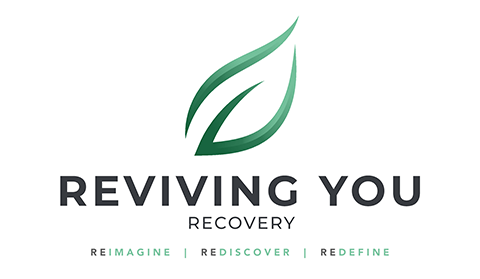Helping Clients Find Gratitude in Recovery

When clients hit challenges in their lives, it is easy to feel down and sucked into negative emotions. However, while these negative emotions are normal and understandable, they can perpetuate the cycle of addiction.
Treatment at Reviving You Recovery is based on the belief that positive emotions can provide the light to move toward healing and recovery. When clients find gratitude in recovery, they can appreciate the positive things in their lives and reconnect with themselves. While finding gratitude in the midst of challenges is difficult, clients can look forward to the next steps of their lives with support.
Importance of Gratitude in Recovery
When a client is in the midst of challenges with addiction, it can feel like they are in a dark cloud. This consistent darkness makes healing very difficult because healing is a transformative process.
To transform, clients need to find meaning, improve their mental health, and reconnect with their lives in a positive way. This is where gratitude comes in. It acts as one ray of light in a person’s life at a time when darkness is persistent and constant.
Finding Meaning
Healing from addiction requires that a client make many changes. These shifts include behavioral patterns, social connections, and the way a person deals with difficulties that arise. While some changes are simple, even the simplest change is difficult. It takes effort and time and is significantly more effective when a person has meaning and a reason to change.
Gratitude in recovery helps clients to see their reason for change. When a person is able to connect with what they feel grateful for in their lives, they see the many benefits of making an effort to change. The what or who they are grateful for will vary. However, the emotion itself helps them to connect with all that is good and light in their lives.
Improving Mental Health
Mental health and addiction are closely linked. When a person is struggling with addiction, it negatively impacts their mental health. In addition, mental health difficulties increase a person’s risk of addiction and continued substance abuse.
Fortunately, practices that help a person connect with gratitude improve overall well-being, including mental health. Research has found that gratitude helps to improve mental health. Therefore, learning to practice and connect with gratitude in recovery can help with mental health challenges that are due to addiction or related to a client’s substance use.
Reconnecting
When an individual abuses substances consistently, they begin to build their lives around substance use. As a result, they become disconnected from themselves and their lives. This includes the people whom they love and the things they enjoy. The process of reconnecting is important in recovery, as it helps a person to feel like there are other things that are valuable and positive in their lives.
Gratitude is a simple and effective way to reconnect. It helps individuals to see what is really important to them. In addition, gratitude helps a person to reconnect with others. When a client is able to express their gratitude for a loved one, they begin to see the person they may feel they lost due to addiction. This social connection is highly valuable in recovery in order to help a person feel belonging and value in their community.
Get Your Questions Answered Now
Finding Gratitude in Recovery Starts in Treatment
While gratitude is an emotion, it is also a practice. Finding gratitude in recovery often starts with learning practices in treatment that help a person to isolate and connect with these positive emotions. The main reason this is true is that a person struggling with addiction is often disconnected from gratitude, along with many other positive emotions.
However, just because a person is disconnected from their life does not mean they can’t reconnect. In treatment at Reviving You Recovery, clients are offered many ways to reconnect. They are guided through the process of connecting with themselves. Additionally, they are supported along the way so that when they find they are feeling lost and stuck, they have ways to move through these emotions to refind gratitude.

Practicing Gratitude in Recovery
One way to keep gratitude in recovery, both in treatment and after, is through practice. Practicing gratitude is simple but not easy. There are many practices that are options, and it is ideal for a person to find one that they connect with and enjoy.
The basic concept is to focus on things that a person feels grateful for. These can be simple, such as having a good meal. However, they can also be complicated, such as being grateful for what they have learned from an experience. The specific what or who is not important. Instead, the value of a gratitude practice is to focus on the sensation of being grateful, to hold this feeling, and to use it as a light to guide a person towards a happier and healthier life.
When a client first enters treatment for addiction, they are often struggling. However, helping clients find gratitude improves healing from addiction. At Reviving You Recovery, we believe that when clients reconnect with their lives, they are more likely to recover effectively. Finding gratitude in treatment and recovery is a method that helps clients find a positive connection to their lives. Therefore, we help clients practice gratitude in treatment by recognizing the things they feel positive about. By focusing on gratitude, we help clients reconnect with their lives, which improves the healing process. Call us today at (951) 723-7598 to learn more about our addiction treatment options and how we integrate gratitude practices into treatment.
We Accept Most Insurances
We are in network with:









We know insurance coverage can be a source of uncertainty for people. We make sure you have all the information necessary. The great news is health insurance can potentially cover the total treatment costs. If you don't have insurance, we offer cash payment options for our treatment programs and are committed to working with clients regardless of financial situations.
